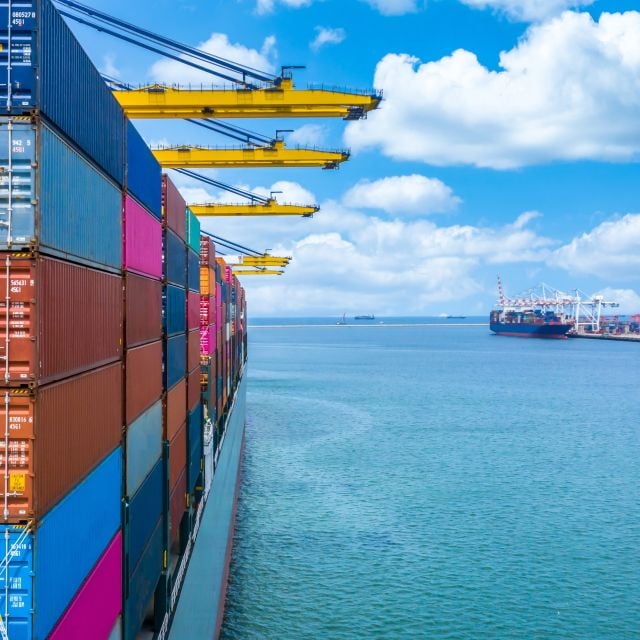Background to the Courier Low Value Shipment (CLVS) Program
When goods are purchased through e-commerce or mail order, conventionally Canadian consumers or non-resident importers (i.e., the exporters in most cases) undertake import compliance. Most Canadian consumers are not well versed in customs laws relating to valuation of goods, and simply pay the duty and GST determined by the assigned customs broker/courier in order to obtain the ordered goods. On the other hand, foreign exporters who act as non-resident importers into Canada have a much better understanding of customs valuation, and the benefits derived from use of the CLVS Program, and the CBSA is concerned that there is significant undervaluation used as a means to obtain access to the CLVS Program. The CLVS Program allows for streamlined and simplified customs processing of shipments valued at CAD$2,500 or less, enabling the expedited release of goods imported through the program.[1]
In recent years the volume of low value shipments has increased significantly due to the rise of mail order and e-commerce purchases. At the same time, seizures have become a less common enforcement tactic and the CBSA sets a very low enforcement action target for such shipments (0.25% in 2013-2014).[2] Frequently, high tariff items such as clothing, household goods, and accessories are imported using the CLVS Program, leading to what the CBSA would like to cure, i.e., a direct loss of revenue in cases of undervaluation.
Under the CLVS Program, the courier carrying the shipment acts as the importer, which means that the shipment will not appear on the true importer's FIRM Report. These shipments would only rarely be subject to enforcement action. Indeed, the party responsible for the undervaluation, namely the exporter who provided information/documentation for the completion of the declaration, is often beyond the reach of Canadian customs law, although its name, as seller of the goods, resides in the CBSA records.
Seizure Policy Amended
On January 28, 2015, the Canadian Border Services Agency (CBSA) issued Customs Notice 15-002, which sets out the CBSA's new seizure policy for undervaluation of commercial goods imported through the Courier Low Value Shipment (CLVS) Program (the "Policy").[3] The Policy authorizes CBSA officials to undertake seizure actions under section 110 of the Customs Act in the name of the exporter of the goods if they discover physical evidence that a significant undervaluation has been made by a foreign exporter with respect to the value of goods imported via the CLVS Program. The purpose of the Policy is to "provide the CBSA with a means to deter exporters from undervaluing shipments."[4]By then registering the seizure under the exporter's name, the CBSA may better track chronically non-compliant exporters. Through the use of enforcement systems such as the Integrated Customs Enforcement System (ICES), the registration of such actions against the name of the exporter could result in the exporter's goods being the subject of "red flags"[5] and increased rates of enforcement actions such as seizures. The Policy therefore:
- relieves the burden on resident importers, such as consumers, who would previously have seizures registered against them without having had any involvement in the non-compliance; and
- induces foreign exporters to voluntarily comply with Canadian customs law rather than have their exports to Canada subject to enhanced scrutiny and enforcement activity.
Before the introduction of the Policy a seizure action under section 110(1) of the Customs Act would be normally entered against the importer of record. However, in many e-commerce situations, the exporter completes the customs declaration and may ship a significant volume of goods to a broad base of end use consumers. In such circumstances, seizure actions against the consumer/purchaser in Canada, or the courier/importer of record, will not be a meaningful deterrent to exporters who engage in undervaluation.
In fact, Canadian customs law has few mechanisms through which it may compel exporters of goods to truthfully and accurately complete customs declarations. The responsibility for ensuring that an accurate customs declaration is made remains that of the importer, and yet it is the exporter who makes the customs declaration. Addressing this enforcement gap, the Policy provides a basis for the CBSA to use its seizure power to track and induce the compliance of exporters who otherwise would be beyond the reach of Canadian customs law.
Trade Verification
In addition to addressing the exporter's malfeasance or negligence through customs seizures, a rather drastic measure, the CBSA has increased enforcement of CVLS importation valuation by directing its attention to non-resident importers. In addition to maintaining the records of these importers in their FIRM Reports, the CBSA is able to compare values declared with published web pricing and thereby note any discrepancies.
These authors have noted that the CBSA has upped the ante by focusing on non-resident importers who effect sales to Canadian consumers by e-commerce. This should serve as a warning to non-resident importers who conduct e-commerce business into Canada that they should review their customs valuation practices to ensure they comply with Canadian law.
[1] Canada Border Services Agency, Memorandum D17-4-0, "Courier Low Value Shipment Program" (19 September 2008); Canada Border Services Agency, Memorandum D17-1-2, "Reporting and Accounting for Low Value Commercial Goods (Not Exceeding CAD$2,500)" (10 September 2013). [2] Canada Border Services Agency, 2013-14 Departmental Performance Report at 47. The enforcement target is the percentage of courier shipments examined by CBSA officials that are subject to an enforcement action and are seized. [3] Canada Border Services Agency, Customs Notice 15-002, "New Seizure Policy for Significant Undervaluation of Commercial Goods in the Courier Low Value Shipment (CLVS) Program" (28 January 2015) ["Customs Notice 15-002"]. [4] Customs Notice 15-002 at para. 7. [5] The Integrated Customs Enforcement System (ICES) retains records for a minimum of six years from the date of the offence. After six years records are no longer accessible (presumably to front line officers) but are still retained and archived.














